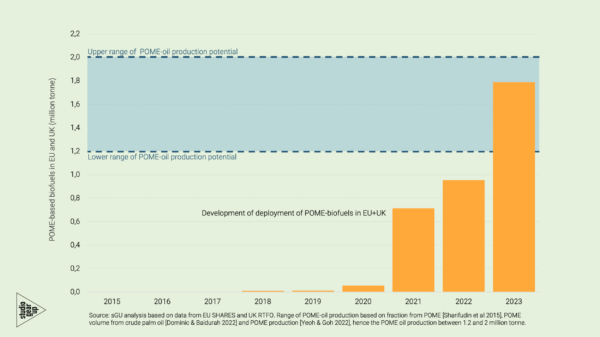For: DG Energy of European Commission
[Jan – Dec 2019]
In this support contract to DG Energy of the European Commission, studio Gear Up analyses the need for CO2-reduction in the EU28 transport sector in 2030 when the targets of the effort Sharing Regulation (ESR – 36% less CO2-emission in non-ETS sectors in 2030 compared to 2005 level) need to be met. The analysis shows that the minimum shares of renewable energy in transport (at least 14% in 2030, including the option for using multipliers) are not sufficient to meet these ESR-targets. The level of fossil fuel use should go down by 30% compared to current levels. The analyses proposed four measures to bring these targets within reach: enhancing the use of public transport and low energy means (like bicycles), maximizing the introduction of electric mobility, exploring energy efficiency gains (including avoided unnecessary mobility) and increasing the share of renewable liquid and gaseous fuels in the existing vehicle fleet.
The report of the analysis can be found here.
In another project under this contract, studio Gear Up provided support services during the 2nd EU-India Conference on Advanced Biofuels, held in New Delhi, March 2019.
Involved team members: Eric van den Heuvel, Sofia Rosero


